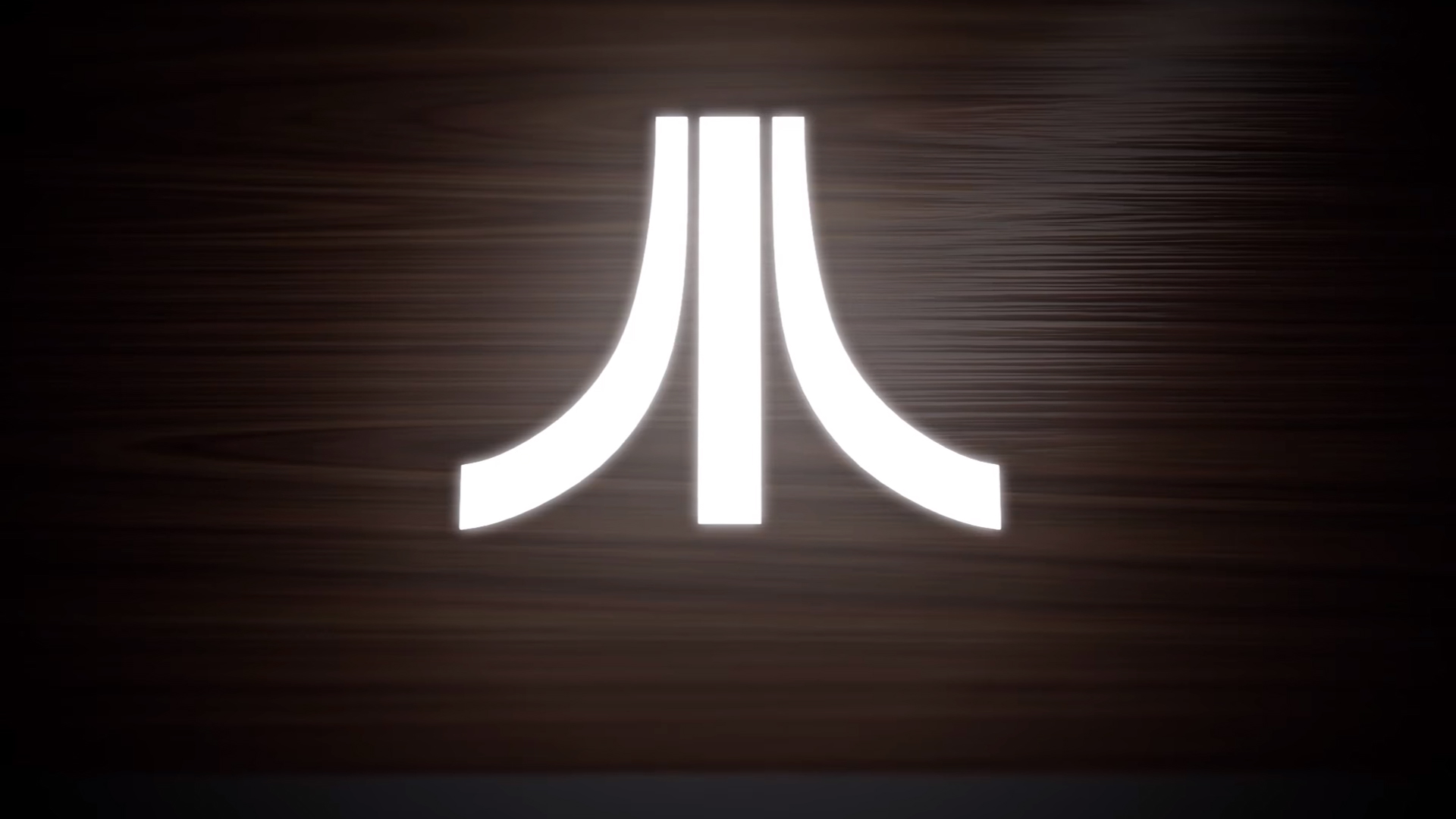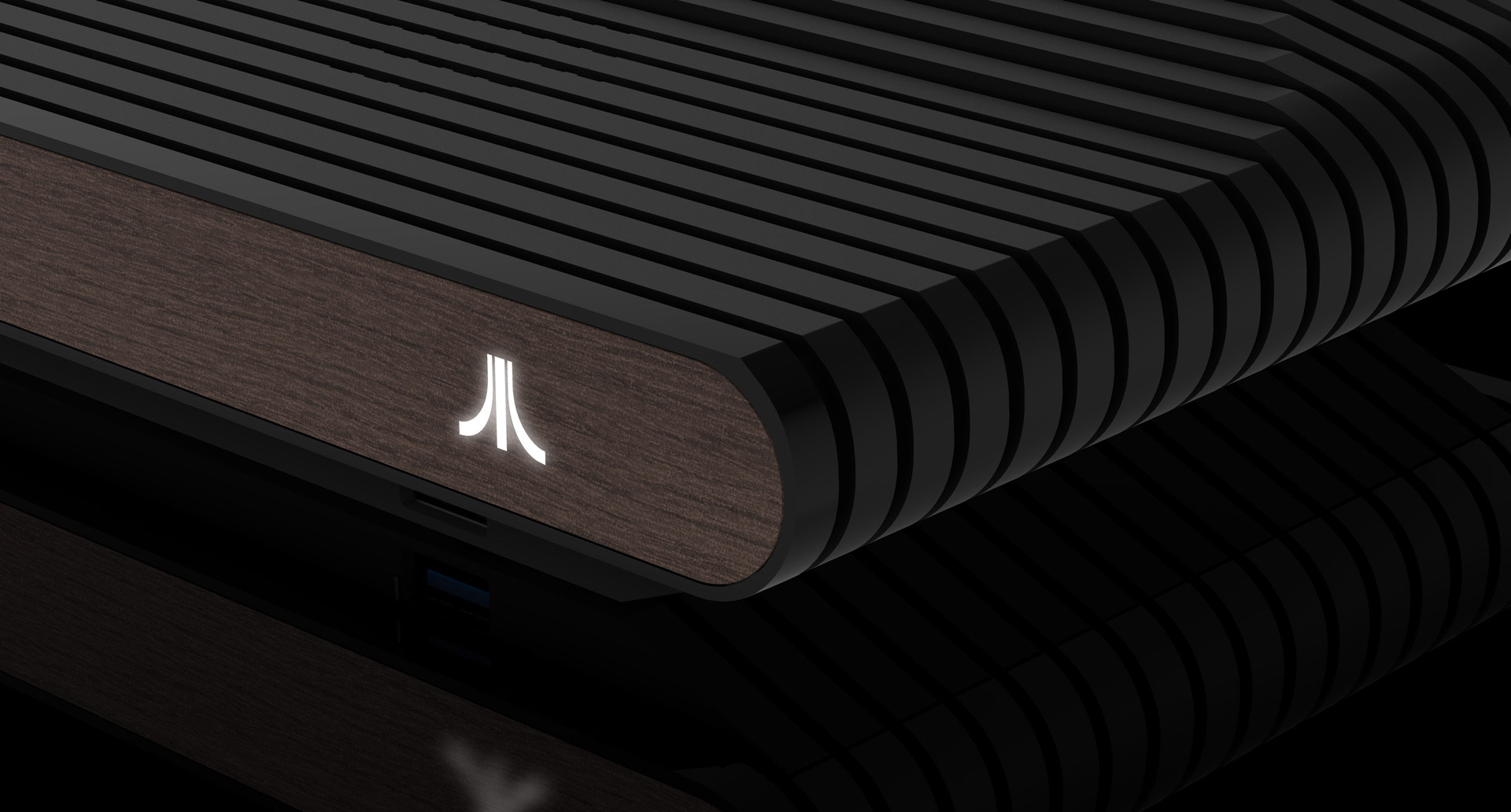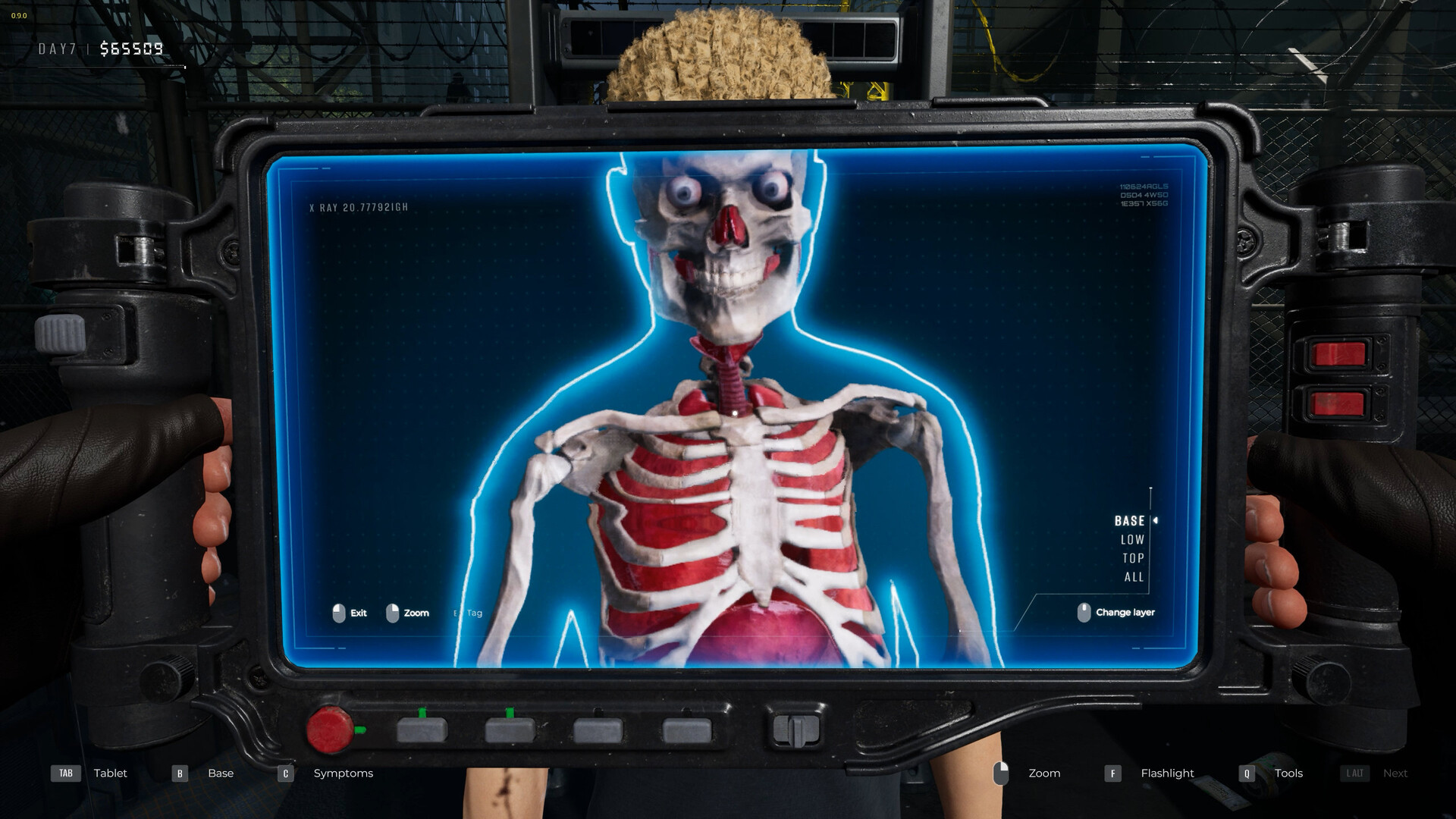We regret to inform you that the zombie once known as Atari is now selling NFTs
It's split itself in two, and one half is all about that crypto.

You either die a hero, or you live long enough to become the villain. Or in Atari's case, you do actually die, and then are repeatedly resurrected over subsequent decades, a once-glorious legacy tarnished and classic games squeezed for all they've got. There was a time when Atari was crucial to this industry becoming what it has, when it was a company that made great things. That time was the 1970s.
The latest incarnation of Atari has, over recent years, announced a new Linux-based version of the VCS console (which has issues we'll come to), an Ethereum-based crypto-casino, and the recent Atari Token payment scheme, among various others. My favourite of the lot is probably the 'vision' for Atari Hotels announced late last year, which have a bunch of lovely concept art and a website selling merchandise. Apparently you'll pay for your poolside treats using Atari Token.
If one of these ever gets built I'll eat a VCS (I may of course be wrong). The art really is nice, though.

Where were we, oh yes, endless schemes that seem slightly off in a way you can't put your finger on.
Clearly the crypto side of things has the suits excited, because the current incarnation of Atari has released a statement announcing a re-structuring of the business into two divisions: Atari Gaming, and Atari Blockchain. The former will focus on exploiting the back catalogue, while the latter is all about that crypto, baby.
Atari Blockchain will "focus on the immense possibilities of crypto and blockchain enabled games. Given the launch of the Atari Token, the primary goal of this division will be the continued development of the Atari Token through further use cases and integration into the Atari ecosystem [...] Atari will also continue to evaluate opportunities in blockchain gaming, NFTs, and blockchain based online worlds."
Atari went on to add to this statement (thanks, Tom's Hardware), that it "has seen a tremendous amount of success in licensing the Atari related brands for the use in NFTs [and] anticipate[s] this playing an even larger part of our licensing strategy in the coming years."
Keep up to date with the most important stories and the best deals, as picked by the PC Gamer team.
Appropriately enough, this division was created on April 1, 2021.

The two new divisions see some boardroom shuffling going on: Wade Rosen, previously chairman of the board of directors, is now CEO, and previous CEO Frédéric Chesnais is now responsible for licensing and the Atari Blockchain division.
"When Fred stepped into the role of CEO, he inherited a situation burdened with debt," writes Rosen. "Since then, he has eliminated debt and enacted a meaningful turnaround. He had the foresight to push Atari into cutting edge markets like Blockchain, the VCS, and the Atari Hotels. It's because of him that the company is at its strongest valuation in seven years."
For those of you just interested in the gaming side, and the admittedly OK-looking Linux-based VCS, the story there has had twists and turns, to put it mildly. The crowdfunding campaign first promised a launch date of December 2017. This was cancelled at the last minute, with no further word until, in March 2018, the VCS launch was set for July 2019. Which it missed, before Atari said March 2020. At which time it announced that it had been delayed due to the coronavirus.
Some of the more recent problems are possibly explained by the fact that the guy who actually designed the console resigned from the role in late 2019, claiming Atari hadn't paid his design firm for six months, and launched a lawsuit (which Atari initially tried to ignore, but is ongoing).
It's thus something of a minor miracle that, in fact, the modern VCS does exist, with the first units finally shipping to early backers in September 2020. But the hardware supply remains constrained, and the company's ability to ship the units at anything like a decent rate remains in question.
So yeah, this is Atari in 2021. A semi-botched console rollout, a bunch of so-so games like Pong Quest that don't do their classic forebears justice, and the promise of "revitalizing classic Atari intellectual property for the modern era"—again. Now with an added focus on blockchain and non-fungible tokens.
We're a long way from when Atari bestrode gaming like a colossus, and felt like it mattered. Younger gamers could be forgiven for thinking that Atari is a t-shirt company. This modern incarnation will doubtless make money, and continue to keep those brands alive in some form.
That iconic logo will probably never die, nor will the name. Accounts vary of why exactly co-founders Nolan Bushnell and the late Ted Dabney named the company Atari: perhaps it was random chance, or perhaps inspired by a term from Go meaning 'hit' or 'strike.' It's been a long time since Atari's been associated with any of those things.
"Invest into the future," says the tagline, "buy Atari tokens now." Welcome to 2021 in videogames.

Rich is a games journalist with 15 years' experience, beginning his career on Edge magazine before working for a wide range of outlets, including Ars Technica, Eurogamer, GamesRadar+, Gamespot, the Guardian, IGN, the New Statesman, Polygon, and Vice. He was the editor of Kotaku UK, the UK arm of Kotaku, for three years before joining PC Gamer. He is the author of a Brief History of Video Games, a full history of the medium, which the Midwest Book Review described as "[a] must-read for serious minded game historians and curious video game connoisseurs alike."

